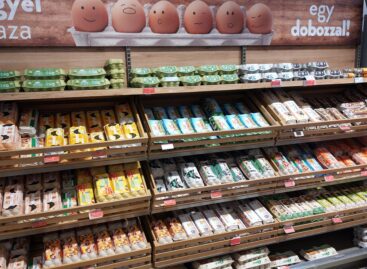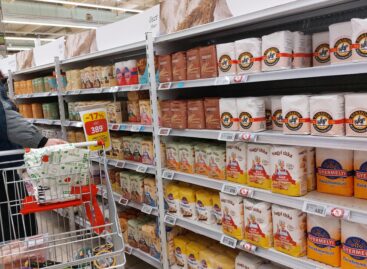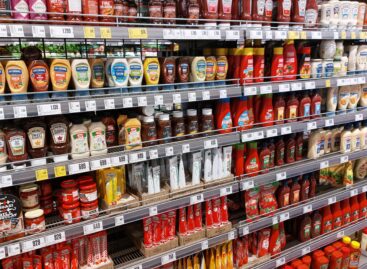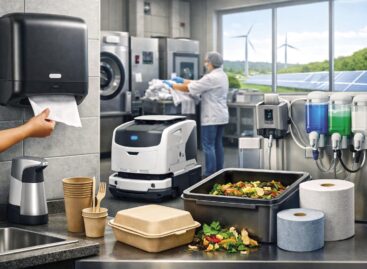Eggs should be fresh, intact and nice
Import’s role is significant

Zoltán Páva
managing director
Magyar Tojás
Last year there was basically no Easter because of the COVID-19 pandemic. Luckily this year the situation seems to be more predictable. We learned from Zoltán Páva, managing director of Magyar Tojás: in 2020 a few weeks before the start of the Easter season demand for eggs rose sharply form one week to another. The company couldn’t have satisfied this without sourcing products from domestic and foreign egg producers.

Dr. Tamás Kertész
managing director
Farm Tojás
Dr Tamás Kertész, managing director of Farm Tojás said the same buying frenzy didn’t occur when the second wave of the pandemic commenced in the autumn. He added that Hungary produces 70-80 percent of the egg it consumes. Boxes of 10 M- and L-sized eggs realise the majority of sales.

Gábor Bokros
marketing director
Gyermelyi
Gábor Bokros, Gyermelyi Zrt.’s marketing director told Trade magazin that egg sales are likely to surge in the Easter period of 2021 too, but the increases might be smaller than usual due to the pandemic.
Csaba Kollár, owner and managing director of Hírös Farm pointed it out that they supply stores without any interruption – they provide them with quality eggs with high added value, which they produce themselves.
The sector faces challenges

Csaba Kollár
owner-MD
Hírös Farm
The egg sector is facing challenges day by day. Mr Kollár talked to us about the high proportion of import and the great price fluctuation in the domestic market. He thinks that stores should emphasise the per kilogram price on shelf labels instead of the per piece price.
Mr Bokros added that the closure of HoReCa units still has a negative effect on egg sales.
Dr Kertész told: the bird flu has reached Hungary once again, but he hopes that this time the situation won’t escalate. Still, it might upset the balance of supply and demand in the egg market.
Mr Páva opines that consumers are changing, for instance demand is growing for functional, added-value fresh eggs, and shoppers are also more and more aware of animal-friendly egg production systems.
Changing shoppers, changing products
Hungarians consume approximately 2.4 billion eggs a year. They choose those products which are clean, nice, have the right colour, fresh and aren’t dented or cracked. Other factors that influence buying decisions are size, the colour of the yolk, the per piece price, freshness and place of origin. As for the various markings, codes and product information indicated, consumer knowledge isn’t sufficient. The typical product in the Hungarian market comes from large scale production, from caged hens, and it is marketed in boxes of 10 or 30.
New innovations with added value
Since from last year all four types of fresh eggs (cage, alternative, free range, organic) that can be sold in the EU are available in Hungary too, Magyar Tojás appeared in the market with free-range eggs.
It was also in 2020 that Farm Tojás came out with free range eggs and this year they are promoting it heavily. More premium products are in a development phase, as demand is increasing for GMO-free, vitamin E and high Omega-3 content eggs too.
Hírös Farm keeps concentrating on sustainability aspects, giving priority to social and environmental considerations. They do caged egg farming with the smallest environmental footprint possible, producing high quality eggs this way.
Gyermelyi Zrt. is building a new egg production facility in 2021; when ready, production capacity will increase by 25 percent. The company focuses on brand building too, so that excellent Gyermelyi egg products are easy to notice in shops. //
Growing egg production costs
With animal feed becoming more expensive in the last few months, Hungarian egg producers are asking for a higher purchasing price from retailer partners. Poultry Product Council (BTT) members claim the price of cereal grains increased by 25-30 percent in the last six months, and forecasts say the price of animal feed will grow by another 10 percent in the first half of 2021. Despite rising production costs, eggs were purchased from farmers for only 5-6 percent more in the examined period. //
Related news
From caged eggs to alternative production
🎧 Hallgasd a cikket: Lejátszás Szünet Folytatás Leállítás Nyelv: Auto…
Read more >Festive table, new habits
🎧 Hallgasd a cikket: Lejátszás Szünet Folytatás Leállítás Nyelv: Auto…
Read more >








